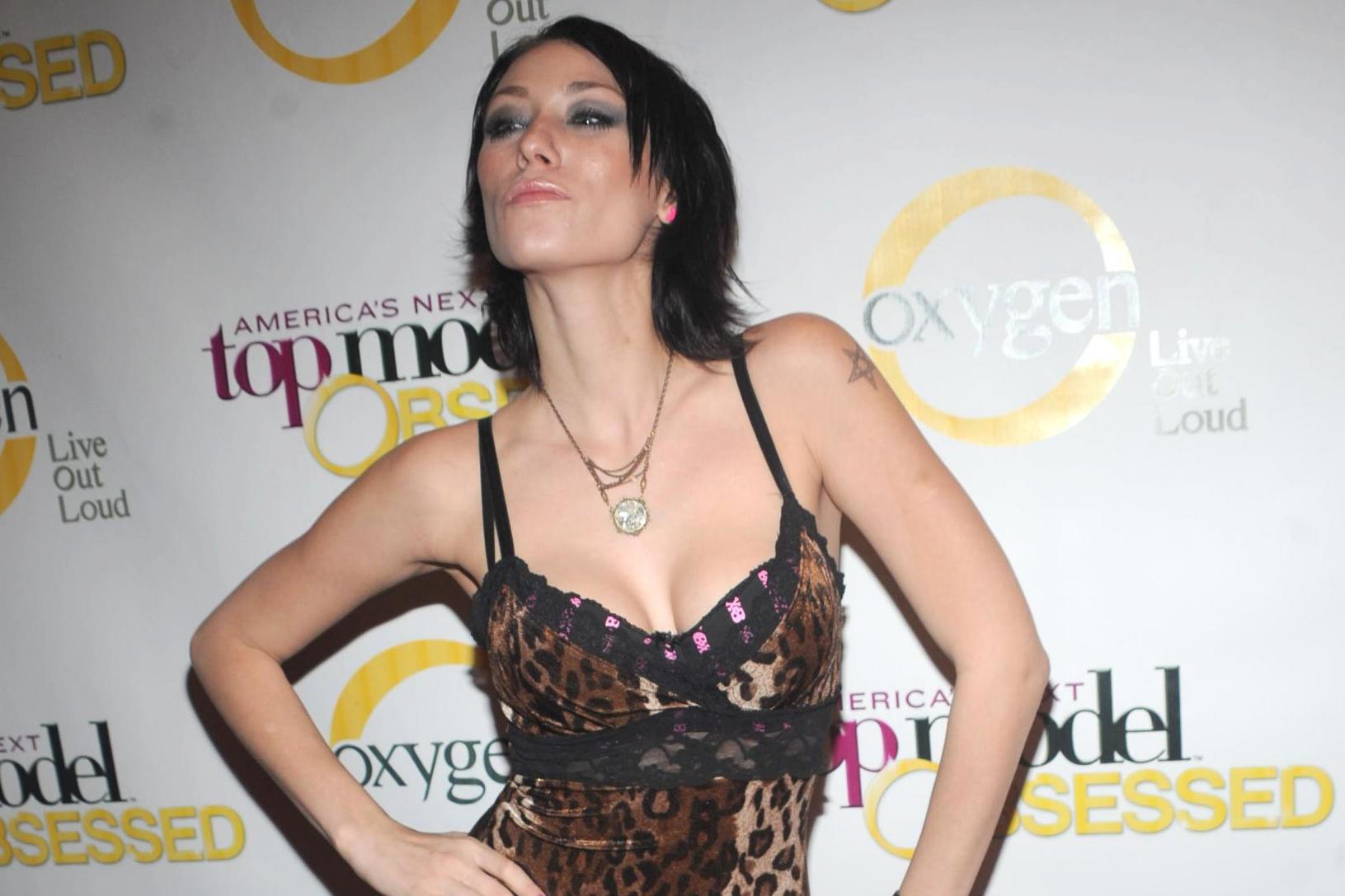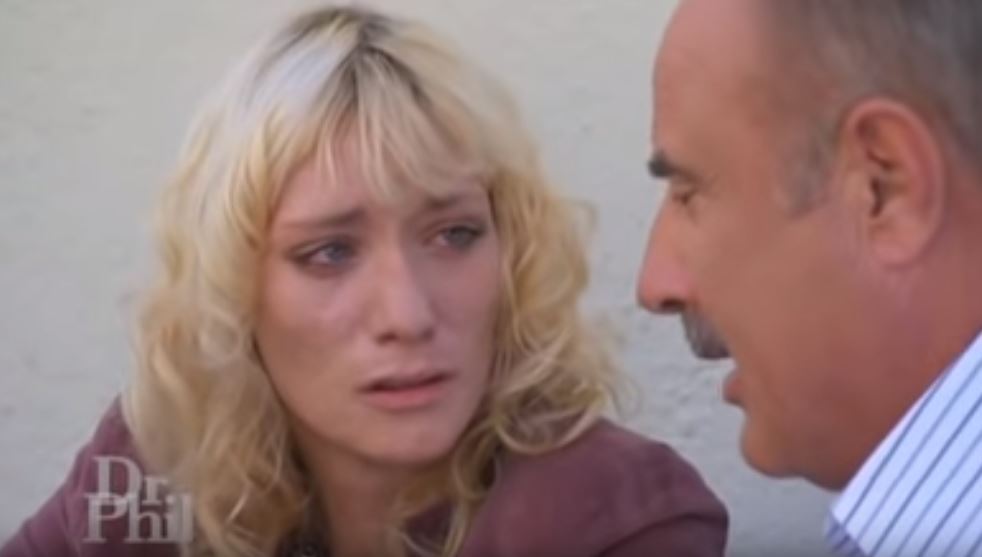Jael Strauss: America’s Top Model contestant whose career was railroaded by addiction
She was young, intelligent and full of promise but after losing a friend to heroin use, she faced her own struggle against crystal meth, prompting her family to contact TV’s Dr Phil for help

Your support helps us to tell the story
From reproductive rights to climate change to Big Tech, The Independent is on the ground when the story is developing. Whether it's investigating the financials of Elon Musk's pro-Trump PAC or producing our latest documentary, 'The A Word', which shines a light on the American women fighting for reproductive rights, we know how important it is to parse out the facts from the messaging.
At such a critical moment in US history, we need reporters on the ground. Your donation allows us to keep sending journalists to speak to both sides of the story.
The Independent is trusted by Americans across the entire political spectrum. And unlike many other quality news outlets, we choose not to lock Americans out of our reporting and analysis with paywalls. We believe quality journalism should be available to everyone, paid for by those who can afford it.
Your support makes all the difference.If Jael Strauss knew her success in America’s biggest modelling competition would lead to drug addiction and homelessness, would she have ever signed up?
This is the question that is surely posed by the trajectory her life took after her quick rise to fame.
The woman who competed in 2007’s series of America’s Next Top Model – the precursor to Britain’s Next Top Model – had become a shadow of her former self as she struggled with meth addiction.
While she managed to keep clean for five years, she was diagnosed with stage four breast cancer in October and died aged 34.
On the show, she presented a boisterous personality.
Its host Tyra Banks tweeted to her following of 15 million: “Top Model has lost a beautiful soul. We will all remember Jael and her fun-loving spirit.”
On the show, Banks was taken aback when Strauss revealed to her that she too was African-American, from her mother’s side. Her father was Jewish.
Detroit-born Strauss’s modelling career took a turn from promoting and managing bands in Hollywood when a talent scout contacted her through Myspace and encouraged her to sign up for the TV competition.
Despite claiming not to be a fan of the show, and thinking it would be “easy”, Strauss entered and made it to the finals of series eight, achieving sixth place.
As a contestant she was confident and forthright from the outset. She was punished with sit-ups for messing around in boot camp. Later she was rather outrageously pushed into a pool by 50 Cent after apparently having wound him up at a party – she got out of the pool only to be shoved into it by the rapper again.
During filming of the show, a close friend of Strauss died from a heroin overdose, an event that she said deeply affected her. Strauss’s steely determination to win, however, saw her continue with the competition.
After her success on Top Model, boutique Hitch Couture signed Strauss as a model. The lifestyle that accompanied that, however, didn’t last for long. Her attitude, often described by fellow contestants as “over the top”, soon spiralled out of control.
It was revealed in 2012 that Strauss was addicted to methamphetamine among abuse of other substances including painkillers and cocaine, and was living on the streets of her hometown.
The model appeared a shell of former, outgoing self: her unique punky looks and matching attitude had fallen victim to the physical effects of the drug, leaving her with damaged skin.
On learning of her diagnosis, she wrote: “I need another one of those miracles I got back in 2013.”

The miracle she referred to was an intervention that helped Strauss kick her addictions through rehab.
But it came at a price. Strauss’s family were so concerned for her life they went behind her back to stage an intervention.
In 2012, her brother, Brandon and mother, Debbie, sought the advice of Phil McGraw, a former psychologist and host of American TV show Dr Phil to help convince Strauss to enter rehab.
On the show, Strauss gave the impression she didn’t want any help from McGraw.
In fact, she fled the studio – she was clearly smart enough to know that the intention of the show was to make engaging TV, not focus on her recovery.
McGraw followed her into the parking lot – with camera in tow.
“You’re doing drugs, you’re living in crappy hotels,” McGraw said as he kneeled to talk to her behind a trash can. When he added “you’re slipping in some sleaze-ball joint” she immediately objected.
“I don’t want everybody to know all that,” she said. “Why’s it everybody’s business.”
Instead of apologising, McGraw became defensive and said that she had lied, forcing him to bolster his “argument” by making her private information pubic.
McGraw goes on to allude to an episode of her life he appears to be privy too.
“What happened to you when you were 10 years old?” he probes.
With tears in her eyes, she looks aghast.
“Oh my God, I don’t want to talk about that,” she says.
“You don’t have to talk about it, you know what I’m talking about, right?” says McGraw, wagging his finger at her. She nods.
“And did they believe you?” he says. “No, they didn’t believe you.”
The clip cuts to the 250 members of the audience Strauss abandoned who are listening to every word.
He ends up hugging her as she sobs, having shaken on the deal for her to go into rehab.
She later said: “I do feel that the Dr Phil show exploited me, and did that to other people with their addictions. At the same time I have an inner conflict because I know that my story has helped so many people.”
Her frustration at not having a choice at the time was evident. The intervention by the TV show, did, however, trigger her journey to enter rehab.
Strauss said: “This journey has been very unexpected.”
When she was clean, she devoted herself to a rehabilitation centre and said helping others was the most important thing in her life. Looking back in 2016 she said she was, “The happiest I have ever been in my entire life.”
A GoFundMe page set up in October by Strauss’ partner, Cody Haynes, helped raise a total of $19,000 (£15,000) for her medical treatment.
Jael Strauss, American model, born 3 July 1984, died 4 December 2018
For free, confidential drugs information and advice call Know the Score on 0800 587 5879 or Narcotics Anonymous on 0300 999 1212
Join our commenting forum
Join thought-provoking conversations, follow other Independent readers and see their replies
Comments